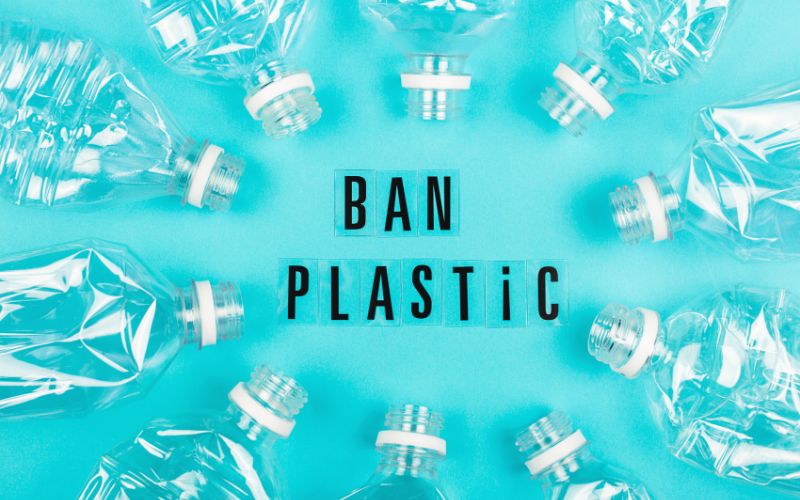Plastic bans and policies are increasingly being implemented worldwide as part of efforts to mitigate plastic pollution, conserve natural resources, and promote environmental sustainability. These measures vary in scope and impact, reflecting diverse approaches to addressing the challenges posed by plastic waste across different regions and economies.
Types of Plastic Bans and Policies
- Single-Use Plastics Bans: Governments and municipalities are enacting bans on specific single-use plastic items, such as plastic bags, straws, cutlery, and styrofoam containers. These bans aim to reduce plastic consumption and encourage adoption of reusable alternatives.
- Extended Producer Responsibility (EPR): EPR policies require producers to take responsibility for managing and recycling the products they manufacture, including plastics. This encourages product design for recyclability and supports recycling infrastructure development.
- Deposit Return Schemes (DRS): DRS incentivizes consumers to return plastic beverage containers for recycling by offering refunds or incentives. This reduces littering and promotes higher recycling rates for plastic bottles and cans.
- Plastic Packaging Regulations: Regulations on plastic packaging focus on minimizing excessive or non-recyclable packaging materials, promoting eco-design principles, and encouraging the use of recycled plastics in packaging.
Global Examples of Plastic Bans and Policies
- European Union: The EU has implemented stringent regulations, including bans on single-use plastics like cutlery, plates, and straws. It also promotes recycling targets and requires member states to reduce plastic bag usage.
- India: India has banned single-use plastics in several states and cities, with restrictions on plastic bags, disposable plastic items, and microbeads. The government encourages alternatives like cloth bags and biodegradable materials.
- United States: Several states and cities in the US have enacted bans or restrictions on single-use plastics, focusing on plastic bags and straws. California, for example, has implemented comprehensive measures to reduce plastic waste and promote recycling.
- Africa: Countries like Kenya and Rwanda have implemented nationwide bans on plastic bags, with strict penalties for non-compliance. These initiatives aim to reduce plastic pollution and promote sustainable waste management practices.
Challenges and Implementation Issues
- Enforcement: Effective enforcement of plastic bans and policies requires robust monitoring, regulatory frameworks, and cooperation between governments, businesses, and civil society to ensure compliance and address challenges.
- Consumer Behavior: Changing consumer habits and promoting awareness about the environmental impacts of plastic consumption are critical for the success of plastic bans and policies.
- Economic Impacts: Industries reliant on plastic production may face economic challenges during the transition to alternative materials or recycling processes. Governments may need to support affected sectors through incentives and support programs.
Future Directions and Sustainability Goals
- Innovation in Materials: Investing in research and development of sustainable alternatives to plastics, such as biodegradable polymers and renewable materials, can support the transition towards a circular economy.
- International Cooperation: Global collaboration and knowledge-sharing on best practices, technological advancements, and policy frameworks are essential for addressing plastic pollution on a global scale.
- Public Engagement: Engaging stakeholders, including businesses, communities, and consumers, in the development and implementation of plastic bans and policies fosters ownership and commitment to sustainability goals.
Conclusion: Advancing Towards a Plastic-Free Future
Plastic bans and policies represent proactive steps towards reducing plastic pollution and promoting environmental sustainability worldwide. By adopting comprehensive measures, fostering innovation, and promoting responsible consumption and waste management practices, countries can mitigate the environmental impacts of plastics and create a cleaner, healthier planet for future generations. Embracing a collective commitment to sustainable development is crucial for achieving lasting impact and preserving natural resources for the benefit of all.


